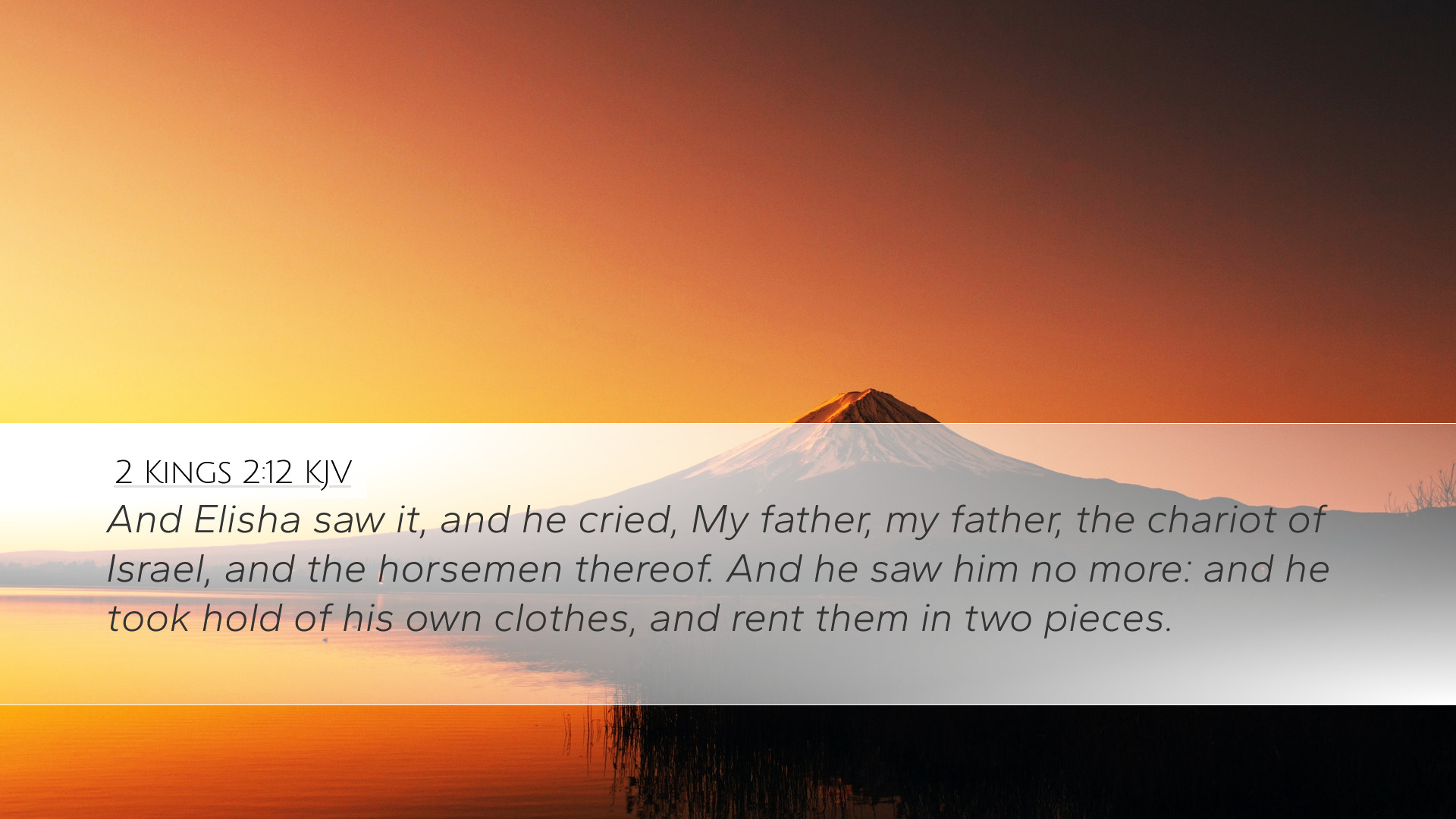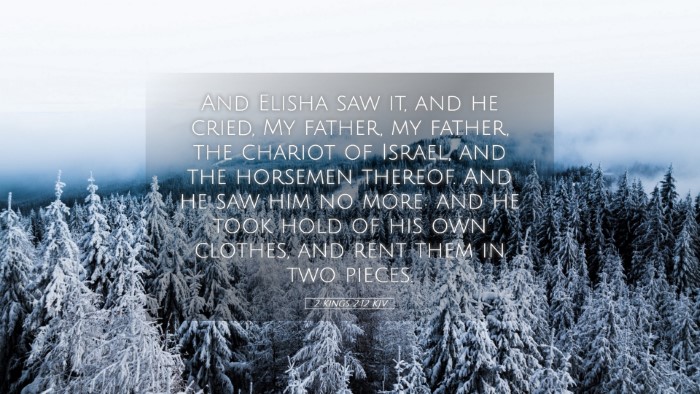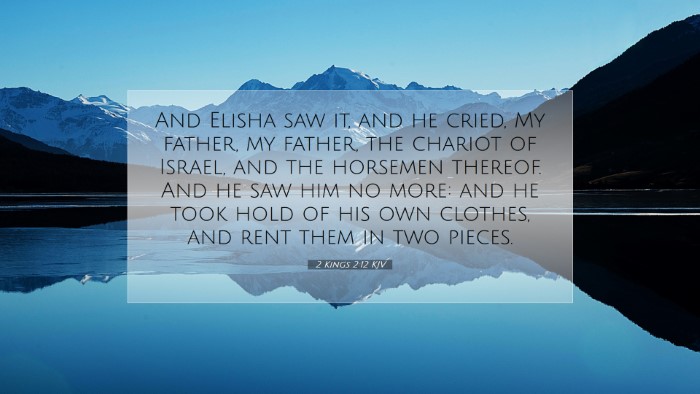Commentary on 2 Kings 2:12
2 Kings 2:12 states: "And Elisha saw it, and he cried, My father, my father, the chariot of Israel, and the horsemen thereof. And he saw him no more: and he took hold of his own clothes, and rent them in two pieces." This profound moment marks the transition of prophetic authority from Elijah to Elisha and encapsulates a wealth of theological and narrative significance. The commentaries of Matthew Henry, Albert Barnes, and Adam Clarke provide profound insights into this pivotal event.
Theological Significance of Elijah's Ascension
Henry observes that this moment is not merely a physical departure but a spiritual transition, indicating God's ongoing purpose through His prophets. Elijah's ascension symbolizes the empowerment and continuation of God's work on Earth, emphasizing the idea that while leaders may depart, God’s message and mission persist through those He appoints.
Elisha’s Reaction
Elisha's lament, "My father, my father," reflects not only a personal loss but also the weight of responsibility he feels as he witnesses the chariot of fire—a supernatural event that underscores Elijah's unique role as a prophet of God. This exclamation points to the mentor-student relationship, highlighting the emotional and spiritual impact of Elijah on Elisha. Barnes notes that this cry is a recognition of their close relationship and an acknowledgment of the significant loss faced by Elisha.
The Role of Prophets
Clarke elucidates the importance of prophets in Israel's history, asserting that they serve as God's messengers to guide the people. Elisha’s grief not only showcases his personal attachment to Elijah but also marks the end of an era for the prophetic ministry. The mention of "the chariot of Israel, and the horsemen thereof" signifies that Elijah’s ministry was instrumental in delivering Israel from idolatry and oppression.
Symbolism of the Chariot and Horsemen
Within this verse, the chariot and horsemen symbolize divine power and protection. Henry elaborates on how such imagery reflects God's might and the means by which He intervenes in human affairs. The phenomenon of the chariot of fire serves as a reminder of God’s active presence with His people, particularly in times of transition, suggesting that the loss of one prophet is not equated with the absence of divine guidance.
The Significance of Rending Clothes
Elisha’s act of tearing his clothes signifies mourning, indicating deep sorrow over Elijah’s departure. Clarke interprets this as representing not only personal grief but also an acknowledgment of the momentous shift in prophetic leadership. In Jewish culture, rending garments was a traditional response to extreme distress, thereby illustrating the strength of Elisha's feelings. This action also can be seen as a physical manifestation of Elisha's desire to take on the mantle of prophecy.
Foreshadowing and Implications for Elisha's Ministry
As Elisha witnesses the fiery chariot ascending into the heavens, it sets a remarkable precedent for his subsequent ministry. Barnes posits that this event foreshadows the powerful works and miracles that Elisha would perform, contrasting Elijah's ministry with Elisha’s broader reach among the people of Israel. The mantle of Elijah symbolizes not only the prophetic authority but also the anointing Elisha receives to carry forward God's plan.
Lessons for Contemporary Believers
This account offers modern believers insight into the continuity of God’s work and the importance of spiritual mentorship. The text encourages a reflection on how spiritual leaders influence their successors. Just as Elijah empowered Elisha, leaders today must invest in those who will carry forward their spiritual legacy. Elisha’s response conveys the weight of inheritance and responsibility placed upon those in positions of leadership.
Conclusion
In summary, 2 Kings 2:12 encapsulates the dual themes of loss and continuity. Elijah's ascension profoundly impacts Elisha, seen through his lament and subsequent actions. Through the insights of Henry, Barnes, and Clarke, we grasp the magnitude of this moment, not only in the narrative of Israel but also in the overarching story of God’s engagement with humanity. The legacy of prophetic ministry, divine empowerment, and the responsibilities passed from one generation to the next remain vital lessons for pastors, theologians, and students of the Word.


